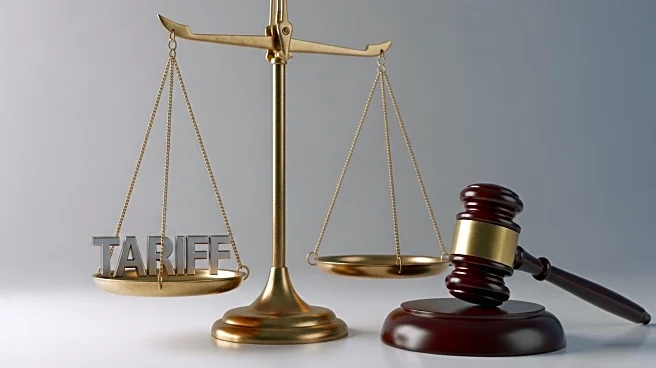What's Happening?
U.S. Treasury Secretary Scott Bessent has expressed confidence that the Supreme Court will uphold President Trump's use of a 1977 emergency powers law to impose tariffs on various trading partners. This comes after a divided U.S. appeals court ruled that most of these tariffs are illegal, although they remain in place until October 14 to allow for an appeal. The tariffs, part of Trump's trade war strategy, include measures against China, Canada, and Mexico, aimed at addressing trade imbalances and curbing fentanyl imports. The legality of these tariffs is being challenged, but Bessent is preparing a legal brief to support the administration's case, emphasizing the urgency of the issues at hand.
Why It's Important?
The outcome of this legal battle could significantly impact U.S. trade policy and economic relations with key global partners. If the Supreme Court upholds the tariffs, it would affirm the president's broad authority under the International Emergency Economic Powers Act, potentially setting a precedent for future administrations. Conversely, if the tariffs are struck down, it could limit executive power in trade matters and necessitate alternative strategies to address trade imbalances and drug trafficking. The decision will affect industries reliant on international trade and could influence global economic dynamics.
What's Next?
The Trump administration is preparing for the Supreme Court appeal, with a backup plan involving other legal authorities, such as the Smoot-Hawley Tariff Act, which allows for temporary tariffs. The decision, expected after October 14, will be closely watched by businesses, trade partners, and policymakers. Depending on the outcome, there may be shifts in trade negotiations and economic policies, with potential reactions from affected countries and industries.











